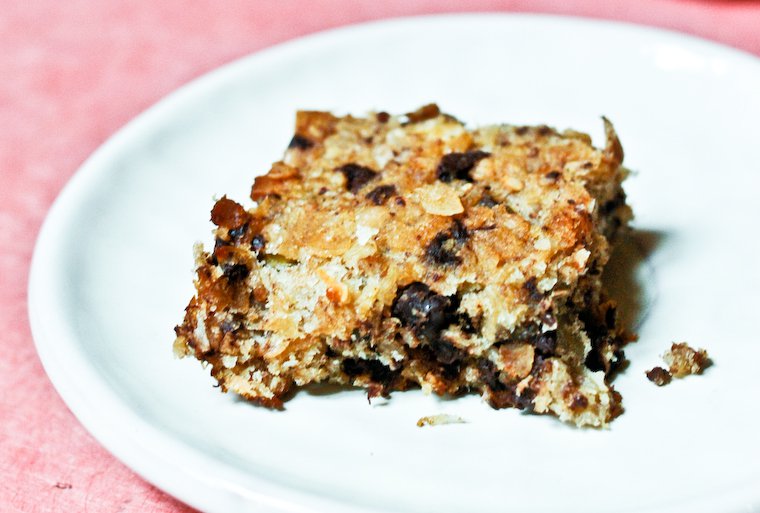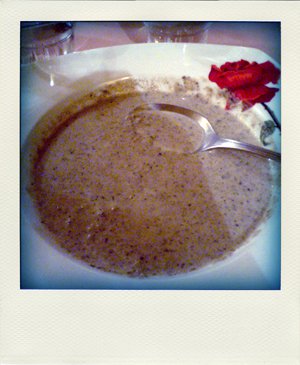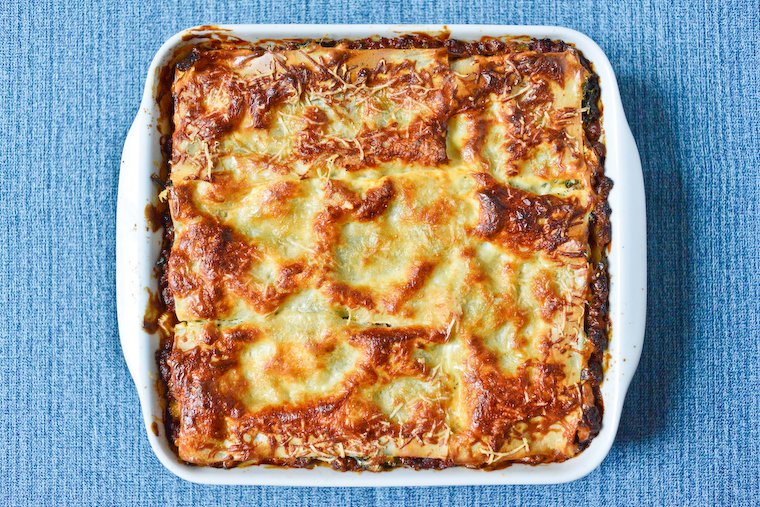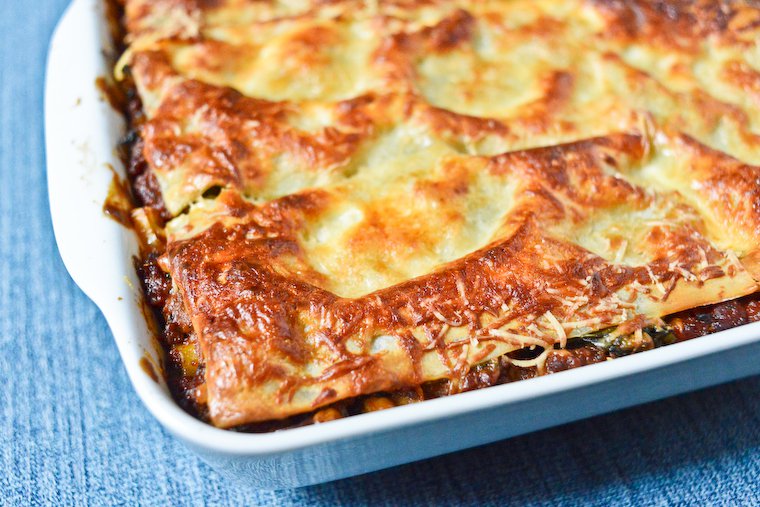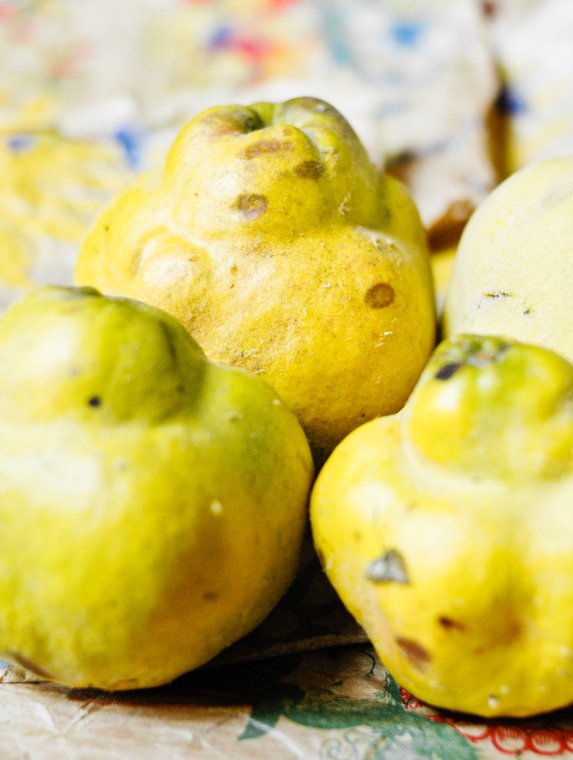When Heidi posted about her friend Nikki’s healthful cookies a couple of months ago, my curiosity was piqued, and the recipe firmly affixed to my mind’s corkboard*.
And as soon as I had a few browning bananas on hand — some might accuse me of letting them overripen on purpose, but that’s just libel and they’ll be hearing from my attorney — I knew just how to put them to use.
I made a few modifications to the original recipe: 1- I used almond butter rather than coconut oil, which I didn’t have. 2- I decreased the amount of chocolate — completely out of character, I know, but I stopped when the chocolate-to-batter ratio felt right to me. 3- I didn’t add the cinnamon because I’m not very fond of the banana-cinnamon pairing. 4- I also omitted the baking powder: there is virtually no gluten in the recipe**, so it didn’t seem like a leavener would have much effect.
Oh, and instead of shaping bite-size cookies from the batter, I simply poured and baked the whole thing in a rectangular dish, and cut it into squareish bars after the fact: it was just easier, and because I knew we’d need a few days to eat our way through them and the fat content in the recipe was not very high, cutting servings as we went would help keep the texture fresh and moist.
And I’m happy to report it was a smashing success: these vegan oatmeal bars (or cookies) call for no sugar, and rely instead on the sweetening power of mashed bananas, and such flavor-bolstering ingredients as dark chocolate and grated coconut. The result is a discreetly sweet, but highly tasty confection that feels like a treat, but can be eaten for breakfast (it pairs well with clementines) without getting the dreaded sugar crash in mid-morning.
~~~
* Actually, I’m lying about the corkboard: to file and organize my digital notes, lists, and recipes, I use this handy Notebook tool for Mac OS X.
** Pure oats don’t contain gluten, but there can be a smidgen in commercial oats that are processed along with other grains. If you can’t have gluten at all, make sure the oats you use are labeled as gluten-free. Edited to add Lin’s comment: “Here in Australia where gluten-free standards are stricter than in Europe, coeliacs have been advised not to eat the so-called ‘gluten free’ oats, as many of us still seem to react to them. They might be ok for people with different reactions – those who’re allergic to wheat, for example. They contain a different peptide to the one found in wheat gluten, but apparently that can still be pretty disastrous for some of us.” So proceed with care.


